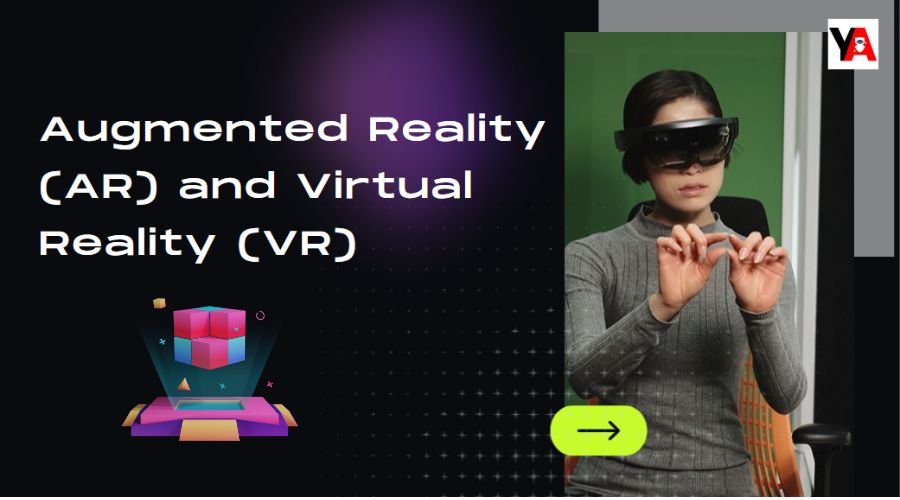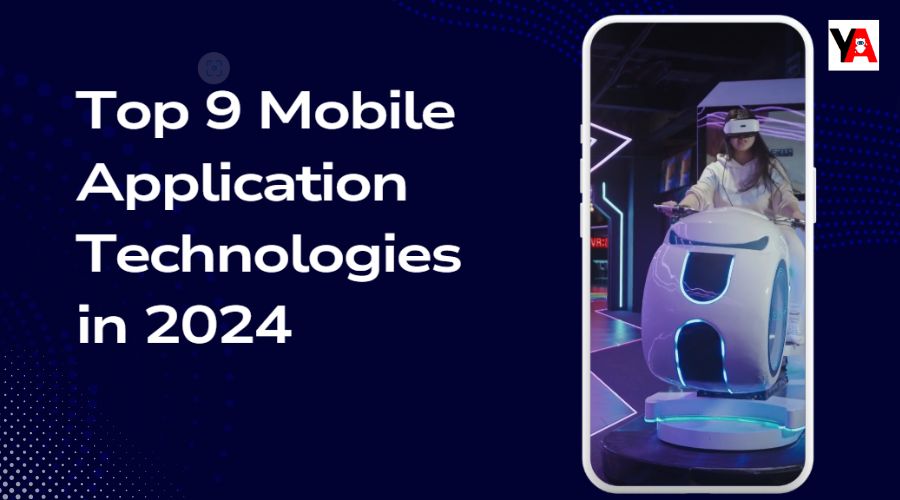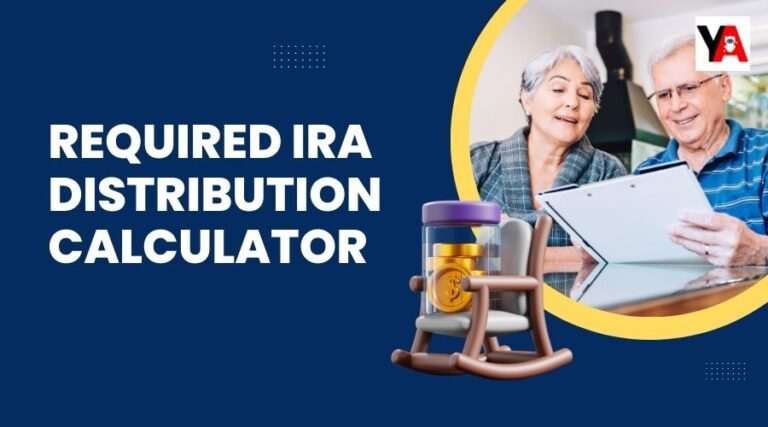Mobile application technologies have developed steadily over time, adjusting to consumers’ ever-changing demands and expectations.
In 2024, several cutting-edge technologies are set to revolutionize the mobile app industry, enhancing user experience, improving performance, and opening new avenues for innovation.
The leading mobile application technologies that are influencing the direction of the sector are examined in this article.
The List of 10 Mobile Application Technologies
Table of Contents
Toggle1. Cross-Platform Development Frameworks

Cross-platform development frameworks such as Flutter and React Native are entirely revolutionizing the mobile app market by enabling developers to create a single codebase that runs on many platforms, such as iOS and Android.
This approach to mobile application technology guarantees a consistent user experience across devices while also drastically cutting down on development time and costs.
Developers can speed up the time to market for new features and apps by streamlining maintenance and upgrades by utilizing a single codebase.
The flexibility and efficiency offered by these frameworks make them an essential tool for modern app development, catering to a broad audience with minimal resource expenditure.
Benefits
- Cost-Effective: By utilising a single codebase, development time and expenses are decreased.
- Consistency: Guarantees a unified user experience across various devices.
- Faster Time-to-Market: Speeds up the development cycle, allowing for quicker launches and updates.
2. Artificial Intelligence and Machine Learning
With its improved personalization, automation, and security, artificial intelligence (AI) and machine learning (ML) are essential to the development of mobile application technologies.
By delivering personalized information and recommendations based on user behavior analysis, AI systems greatly increase user engagement. Using machine learning models to automate repetitive tasks boosts productivity and reduces the chance of human mistake.
Moreover, AI-driven security measures provide real-time threat detection and mitigation, safeguarding user data. With the advancement of these mobile application technologies, there will be more uses for them in mobile apps, which will spur creativity and result in more user-friendly, responsive, and secure experiences.
Applications
- Personalization: To deliver tailored content and recommendations, AI-powered systems examine user behaviour.
- Automation: By automating monotonous operations, machine learning models boost productivity.
- Enhanced Security: AI improves app security by immediately identifying and thwarting threats.
3. Augmented Reality (AR) and Virtual Reality (VR)

Augmented reality (AR) and virtual reality (VR), which blend digital content with the real world to create immersive and interactive experiences, are revolutionizing mobile applications.
Augmented Reality (AR) improves physical settings by superimposing digital data; this has a significant impact on the gaming, retail, and educational sectors. VR offers fully immersive environments, revolutionizing fields like training, simulation, and entertainment.
These mobile application technologies provide users with novel ways to interact with apps, leading to higher engagement and satisfaction. More AR and VR will likely be integrated into smartphone apps as they become more widely available, opening up new opportunities across a range of businesses.
Applications
- Gaming: By fusing digital content with the actual environment, AR and VR provide immersive gaming experiences.
- E-commerce: Thanks to augmented reality, shoppers may view things in their surroundings before making a purchase.
- Education: VR provides interactive and engaging learning experiences.
4. 5G Technology
Mobile applications will undergo a revolution as 5G technology is implemented since it will provide previously unheard-of speed, low latency, and improved connectivity.
5G offers uninterrupted high-quality video chats, uninterrupted real-time gaming, and smooth streaming thanks to data transmission rates that are noticeably quicker than 4G.
Its low latency enhances user experiences in applications that require instant feedback, such as augmented reality and virtual reality. Additionally, 5G’s capacity to support a vast number of connected devices simultaneously is crucial for the Internet of Things (IoT), paving the way for smarter cities and more efficient industrial operations.
Benefits
- Faster Speeds: Enables seamless streaming and real-time interactions.
- Low Latency: Reduces lag, enhancing user experience in gaming and video calls.
- Enhanced Connectivity: supports more linked devices, which is essential for Internet of Things applications.
5. Blockchain Integration
Mobile applications are progressively incorporating blockchain technology to improve productivity, security, and transparency. Blockchain provides strong security against fraud and data breaches by guaranteeing tamper-proof transactions and decentralizing data storage.
These mobile application technologies are especially helpful for apps that deal with supply chain management, financial transactions, and the privacy of personal data. Blockchain’s immutable ledger system provides transparent and traceable records, fostering trust among users.
As mobile apps continue to handle sensitive information and complex transactions, blockchain’s role in ensuring data integrity and security becomes even more critical, driving its adoption across various sectors.
Applications
- Secure Transactions: Blockchain ensures secure and transparent transactions, reducing fraud.
- Data Privacy: Enhances data privacy and security by decentralizing data storage.
- Supply Chain Management: Improves traceability and transparency in supply chains.
6. Internet of Things (IoT)
The Internet of Things (IoT) enables everyday things to be connected to the internet and collect and exchange data, significantly increasing the functionality of mobile applications.
Convenience and energy efficiency are provided by smartphone apps that manage Internet of Things (IoT) equipment in smart homes, such as lights, security systems, and thermostats.
In healthcare, IoT-enabled apps monitor patient health metrics in real-time, facilitating timely medical interventions. Industrial IoT applications improve operational efficiency through real-time monitoring and automation.
As IoT continues to expand, mobile apps will play a pivotal role in managing and leveraging these connected ecosystems, driving innovation across multiple industries.
Applications
- Smart Homes: Mobile apps control IoT devices, enhancing home automation.
- Healthcare: IoT-enabled applications monitor health-related factors and provide doctors with up-to-date information.
- Industrial Automation: Enhances efficiency and monitoring in industrial settings.
7. Progressive Web Apps (PWAs)
Progressive Web Apps (PWAs) provide consumers with a smooth and captivating experience by combining the finest aspects of web and mobile applications.
PWAs are designed to work offline and load quickly, even in areas with poor connectivity, ensuring uninterrupted access to content. Because they are lightweight, they consume less bandwidth and storage than native apps.
PWAs can also be installed directly from the web browser, which simplifies the installation process and does away with the need for an app store.
Their ability to deliver a high-performance user experience with the reliability and capabilities of traditional apps makes PWAs an increasingly popular choice for developers and businesses.
Benefits
- Offline Access: PWAs work offline, providing uninterrupted access to content.
- Low Data Usage: Designed to consume as little data as possible, this is perfect for people with spotty internet.
- Simple Installation: App stores are not required for PWA installations; users can install PWAs directly from their browsers.
8. Mobile Cloud Computing
Mobile cloud computing leverages cloud infrastructure to enhance mobile applications’ performance, scalability, and accessibility. By offloading storage and processing tasks to cloud servers, mobile apps can run more efficiently on devices with limited resources.
Users can access their data from any location at any time with this method since it facilitates seamless data synchronization across various devices. Mobile cloud computing also facilitates real-time collaboration and sharing, essential for productivity and communication apps.
As the demand for more powerful and versatile mobile applications grows, the integration of cloud computing is becoming crucial in delivering high-quality user experiences.
Benefits
- Scalability: Easily scales resources to meet demand.
- Cost-effective: Minimises the requirement for a large amount of processing power and storage on the device.
- Remote Access: Users can access data and apps through remote access from any internet-connected device.
9. Voice Recognition and Natural Language Processing
By facilitating simple, hands-free operation, voice recognition and Natural Language Processing (NLP) technologies are revolutionizing user interaction with mobile applications.
Voice recognition allows users to perform tasks and control apps using spoken commands, enhancing accessibility and convenience. Apps can comprehend and process human language with the help of NLP, resulting in more precise and pertinent responses.
These technologies power virtual assistants like Siri and Google Assistant, which offer personalized assistance and streamline everyday tasks.
As voice recognition and NLP continue to improve, their integration into mobile apps will lead to more natural and efficient user experiences, catering to diverse needs and preferences.
Applications
- Virtual Assistants: Hands-free operation is possible with AI-powered assistants like Siri and Google Assistant.
- Accessibility: Enhances accessibility for users with disabilities.
- User Experience: Offers intuitive and natural interaction methods.
Final Words - Mobile Application Technologies
Technology breakthroughs will cause a big change in the mobile application market in 2024. These mobile application technologies—from blockchain and 5G to cross-platform development frameworks and artificial intelligence—are transforming the landscape of mobile applications in the future. Developers and companies hoping to produce creative and competitive mobile solutions must keep up with these advances.
Frequently Asked Questions
Developers can save time and money by writing code only once and deploying it across several platforms, thanks to cross-platform development frameworks like Flutter and React Native.
Through work automation, real-time danger detection, and personalized experiences, artificial intelligence (AI) improves mobile applications.
Faster speeds, reduced latency, and improved connectivity are provided by 5G technology, allowing for smooth streaming, real-time interactions, and support for a larger number of connected devices.
Blockchain technology guarantees safe and transparent transactions, protects personal information, and makes supply chains more visible and traceable.
PWAs enable offline access, minimal data usage, and simple installation straight from browsers without the need for app stores—combining the greatest features of online and mobile applications.
Scalability, affordability, and remote access are all made possible by mobile cloud computing, which also improves app speed and lets users access data from any internet-connected device.


















